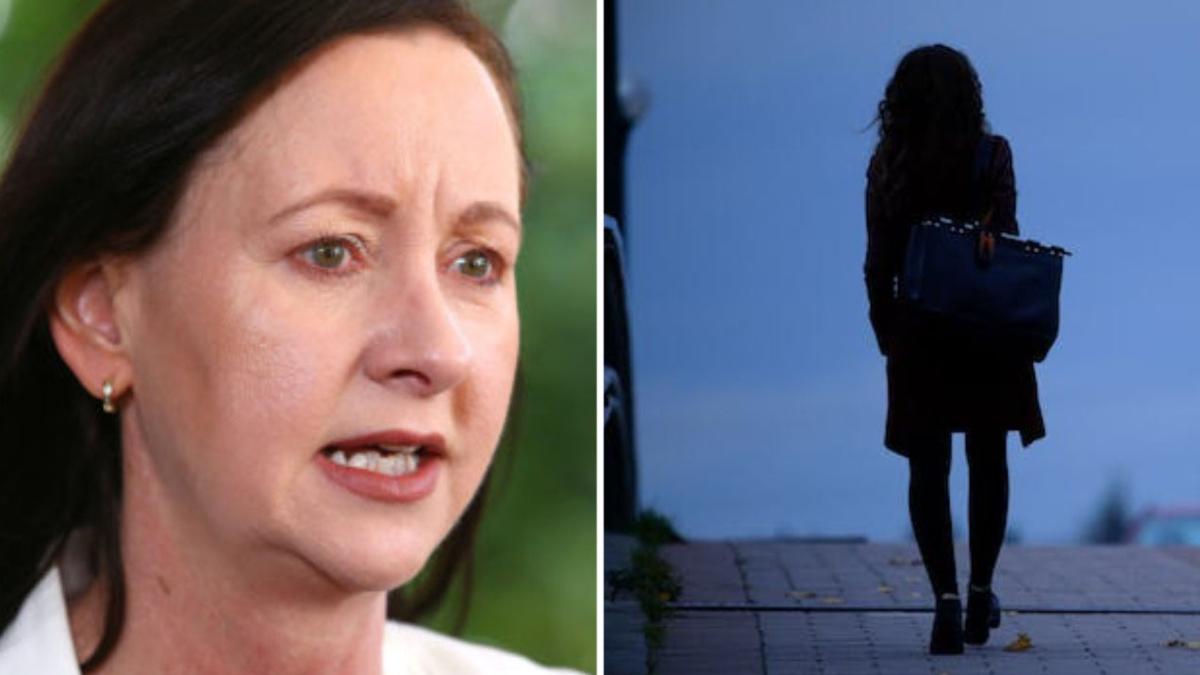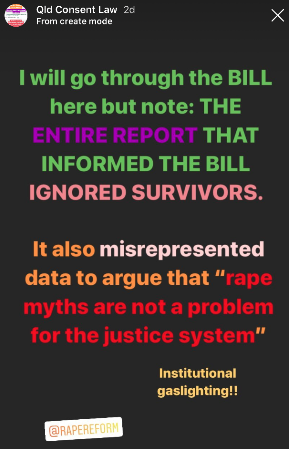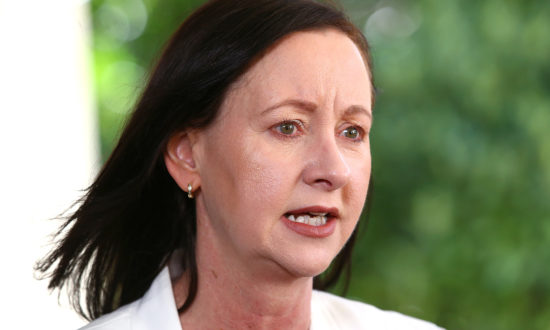
A bill introduced into Queensland parliament this week aiming to amend a centuries-old rape defence is little more than a “slap in the face” for survivors, advocates and legal experts have said.
The bill aims to rectify the controversial ‘mistake of fact’ defence, which allows for a rape defendant to argue they “honestly and reasonably” thought that the other person was consenting.
However, the Criminal Code (Consent and Mistake of Fact) Amendment Bill 2020 fail to address the ‘mistake of fact’ defence in any real way, experts argue.
It will continue to allow alleged rapists to use the defence even if a person is asleep, unconscious or heavily intoxicated.
“Imagine pretending to care about survivors and their voices, and then introducing this bill into parliament,” survivor and advocate Saxon Mullins said.
“It would be laughable if it wasn’t so awful and disappointing.”
Imagine pretending to care about survivors and their voices, and then introducing this bill into parliament.
It would be laughable if it wasn’t so awful and disappointing https://t.co/PEPEyvFEAB— Saxon Mullins (@SaxonAdair) August 13, 2020
The situation is a mess. People are now being urged to take action before this bill becomes law – so let’s dive in.
What is the ‘mistake of fact’ defence?
It’s a 121-year-old Queensland legal defence that allows a defendant to argue they honestly and reasonably believed the other person consented to sex, even if the other person did not. It’s been called a “loophole” that allows rapists to walk free.
The Government has been reviewing the use of the defence after an ABC report revealed the case of ‘Jayne‘, a woman who nearly bled to death after a sexual encounter, but whose alleged rapist used the ‘mistake of fact’ and was able to walk free.
The Crown argued that consensual sex between Jayne and the man turned violent, and Jayne begged him to stop.
She was left with a 10-centimetre internal laceration and was at risk of “actually dying of haemorrhage”, a doctor told the court.
However, a 2011 jury acquitted the man, who used the defence to argue that he had an honest and reasonable belief that Jayne had consented to escalating sex acts.
Following Jayne’s story, Queensland Attorney-General Yvette D’Ath referred the ‘mistake of fact’ defence to the Queensland Law Reform Commission for expert advice on how to change the law.
After 10 months of research, the QLRC quietly released its report last week – to “huge disappointment”.
What does the QLRC report recommend and why does it fall short?
The report recommends just five amendments to the Criminal Code, which Research at Rape and Sexual Assault Research and Advocacy (RASARA) said was a “slap in the face”.
The first three concern consent, while the fourth and fifth address the mistake of fact excuse.
However, every recommendation is already established in case law, and doesn’t even remotely address the issues that prompted the Commission in the first place.
“None of the five recommendations significantly changes the existing law,” Jonathan Crowe, a Professor of Law at Bond University and the Director of Research at RASARA, said in The Conversation.
“The proposals do nothing to strengthen the law on sexual consent, nor do they address the problems that prompted the review in the first place.”
A joint letter from RASARA and the Women’s Legal Service Queensland (WLSQ) outlines why each recommendation falls short, which you can read here.
The ‘mistake of fact’ defence and victims who are unable to consent
The biggest issue with the report and bill is that it does not address the key concern: that defendants can use the mistake of fact defence even if a person is asleep, unconscious or heavily intoxicated.
The joint letter says the report “leaves open the possibility that consent can be inferred from lack of resistance”.
It’s a well-documented fact that rape victims can sometimes ‘freeze’ in response to an attack, leaving them unable to fight their attacker. In an awful twist, it’s in cases where the victim gives evidence of freezing that the mistake of fact defence is more commonly used, according to the QLRC’s own research.
In other words, a victim’s own trauma response can be used by their attacker to walk free.
Gov’t just introduced laws to Parliament following the QLRC report on Qld’s sexual consent laws. But they don’t legislate an affirmative model of consent, and they actually make it EASIER for perpetrators to claim they THOUGHT someone was consenting as a defence?!
— Michael Berkman (@mcberkman) August 13, 2020
The QLRC report is also deeply flawed in its understanding of the influence of rape myths on jurors, the joint letter said.
Rape myths, such as the false beliefs that wearing a short skirt or going home with someone means a victim was ‘asking for it’, have been found to potentially support a defendant’s mistake of fact defence.
However, the QLRC report cited a non-peer reviewed, international study that dismissed the idea that jurors were influenced by rape myths, while appearing to “cherry-pick” a peer-reviewed Australian study which says they do.
“This is a glaring and fundamental methodological flaw in the QLRC’s report,” the joint letter said.
Dr. Rachael Burgin, Chair of the RASARA, called it “institutional gaslighting” on her Instagram story.

What happens now?
The bill to amend the Criminal Code with the five recommendations was introduced to Parliament on Thursday by Attorney-General D’Ath.
If it passes, it means work of advocates such as Professor Crowe and author Bri Lee to have the controversial excuse amended are essentially for nothing. Rape defendants will still be able to use the ‘mistake of fact’ defence to be found not guilty. A victim’s freeze response will still be used against them. And the controversial 121-year-old law will not be altered.
It’s also a “slap in the face” to survivors of sexual assault, particularly for those who offered their time and risked retraumatising themselves in order to inform the Commission.
“The Commission arranged a survivor forum in February 2020, consulting for several hours with survivors about issues of consent and mistake of fact,” a statement from the RASARA said last week.
“The move was important in finally giving survivors a ‘seat at the table’.
“Yet, the report released yesterday does not acknowledge the views expressed at that meeting – evidence that their survivor engagement was symbolic, rather than a genuine attempt to engage with the community.”
What can we do about it?

You can contact Attorney-General D’Ath and say you want the bill to be amended and for survivor’s voices to be heard.
Her email is attorney@ministerial.qld.gov.au, and her phone number is (07) 3719 7400.
To access support around issues of sexual assault or rape, please contact 1800 RESPECT on 1800 737 732, the Blue Knot Foundation on 1300 657 380, or Bravehearts on 1800 272 831 (Monday to Friday). If you are in distress or a crisis, please call Lifeline on 13 11 14.



